Description
The MSO2000 series from ACUTE are mixed-signal oscilloscopes and so-called 3-in-1 analysers. It is a logic analyser, a protocol analyser and a storage oscilloscope integrated in one system. The MSO2000 series is so compact that it fits in a jacket pocket and does not require an external power supply, as it receives the necessary power directly via the USB 3.0 port, i.e. it is absolutely mobile and a smart solution for service and home office. Depending on the model, the system is equipped with 8 or 16 channels, which can be cascaded up to 128 channels in the MSO2216B+. The digital inputs are designed for 2 GHz timing, 200 MHz state analysis (max.) and the analogue inputs for 200 MS/s (max.) - bandwidth 40 MHz at 12 bit resolution. The individual channels can display analogue and digital data simultaneously. The internal memory is up to 8Gb, additionally there is the possibility to activate a streaming mode via the PC working memory.
Features
- PC-based, USB3.0 interface
- 8 / 16 channels (display digital and analogue waveforms of the same channel)
- Number of channels depends on the different models
- Digital inputs : 2 GHz timing, 200MHz state analysis (max.)
- Analogue inputs : 200 MS/s (Max.), Bandwidth 40 MHz
- Analogue inputs - resolution: 12 Bit
- 2/4/8 Gb Memory (Max.) - Depending on the different models
- PC RAM as memory for streaming mode
- Bus Decoding : BiSS-C, CAN 2.0B/CAN FD, DP_Aux¹, eSPI, I²C, I²S, I3C, MII, MIPI I3C, Serial Flash, SPI, SVID², UART (RS232), USB PD 3.0, USB1.1, ... (90+)s
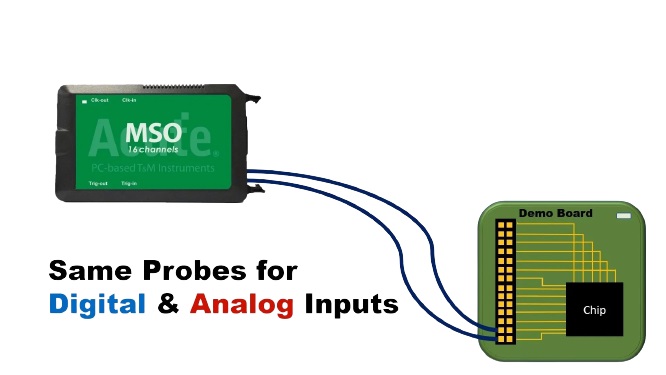
Open protocol interface
If the more than 100 protocol interpreters do not contain the desired protocol, or if there is a need to integrate a custom protocol, the MSO2000's open protocol interface is a helpful feature. To implement a custom decoding function, simply write a Dynamic Link Library (DLL) and add it to the plugin folder of the installation directory. The structural design of the DLL describes the LA Open Decode Interface.
Other functions
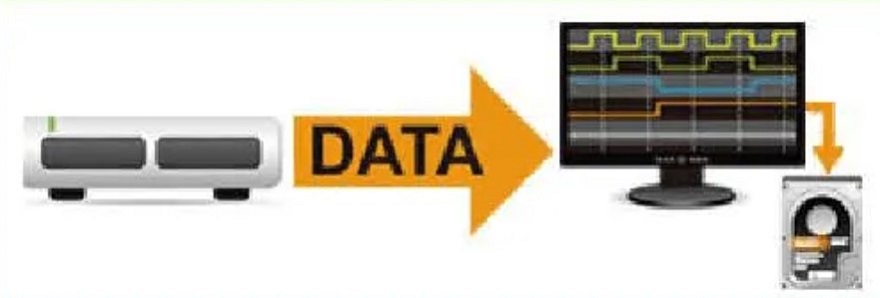
Log analyser
Display log data in real time. Application time: Huge log data with some idle time in between.
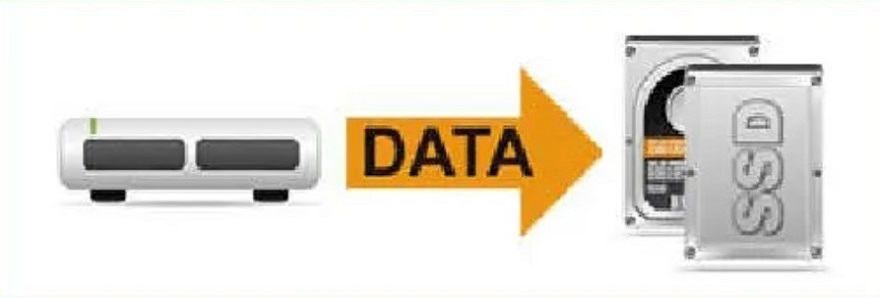
Protocol logger
Store large amounts of data on the SSD hard disk like a data logger
Time of use: Huge log data

Log monitor
Record log data like dash cameras using only the unit's memory.
Time of application: Trigger event occurs only after a very long time.
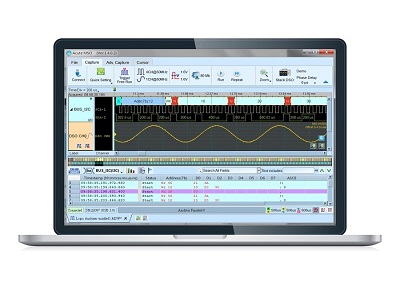
PC GUI software
Powerful PC oscilloscope, log and logic analysis software.
Programming languages & downloads
A VB and a VC driver are available for developing your own applications. Below you will find the download section of Acute, where you can download drivers, SDKs and PC software.
Technical Data
| Model | 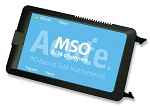 MSO2008E |  MSO2116E | 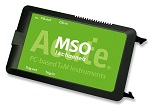 MSO2116B |  MSO2216B |
|---|---|---|---|---|
| Channels | 8 | 16 | 16 | 16 |
| Sampling rate | 2 GHz | 2 GHz | 2 GHz | 2 GHz |
| Internal memory | 2 Gb | 4 Gb | 4 Gb | 8 Gb |
| Bus Trigger / Protocol Analyzer | I | I, II | I, II, III | I, II, III, IV |
| Power sequence channels | 8 | 16 | 16 | 16 (128/ 8 sets cascaded) |
Bus Trigger I: I2C, MIPI I3C 1.1, SPI, UART (RS232)
Bus Trigger II: BiSS-C, CAN2.0B/CAN FD, DP_Aux, HID via I2C, I2S, LIN2.2, MIPI SoundWire 1.2, SENT, USB PD 3
Bus Trigger III: DALI, LPC, MDIO, Mini/Micro LED, MIPI RFFE 3, MIPI SPMI 2.0, Modbus, PMBus, Profibus, SMBus, SVI2, USB1.1
Bus Trigger IV: eMMC 4.5, eSPI, MII, RGMII, RMII, SD 2.0 (SDIO 2.0), serial Flash (SPI NAND), SVID
Protocol analyser I: I2C, MIPI I3C 1.1, SPI, UART (RS232)
Protocol analyser II: BiSS-C, CAN2.0B/CAN FD, DP_Aux, HID via I2C, I2S, LIN2.2, USB PD 3
Protocol Analyser III: DALI, MDIO, MIPI RFFE 3, Modbus, PMBus, Profibus, PWM, SMBus, USB1.1
Protocol Analyser IV: eSPI, MII, RGMII, RMII, SVID




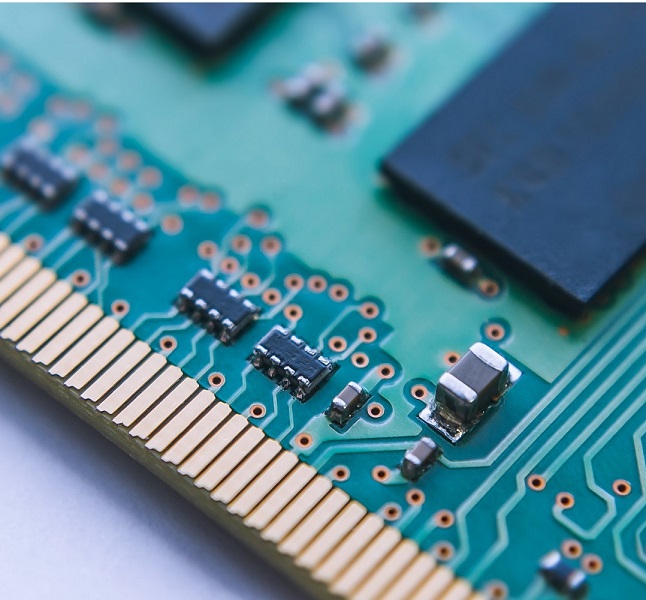



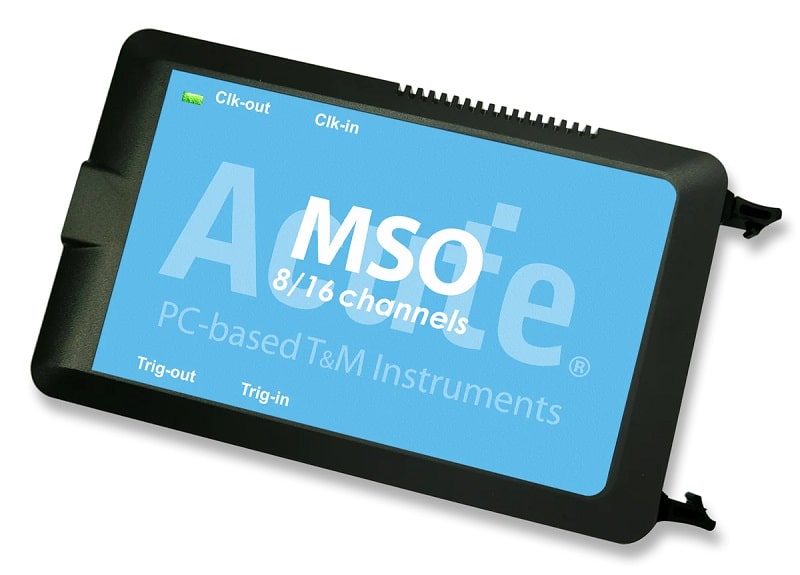
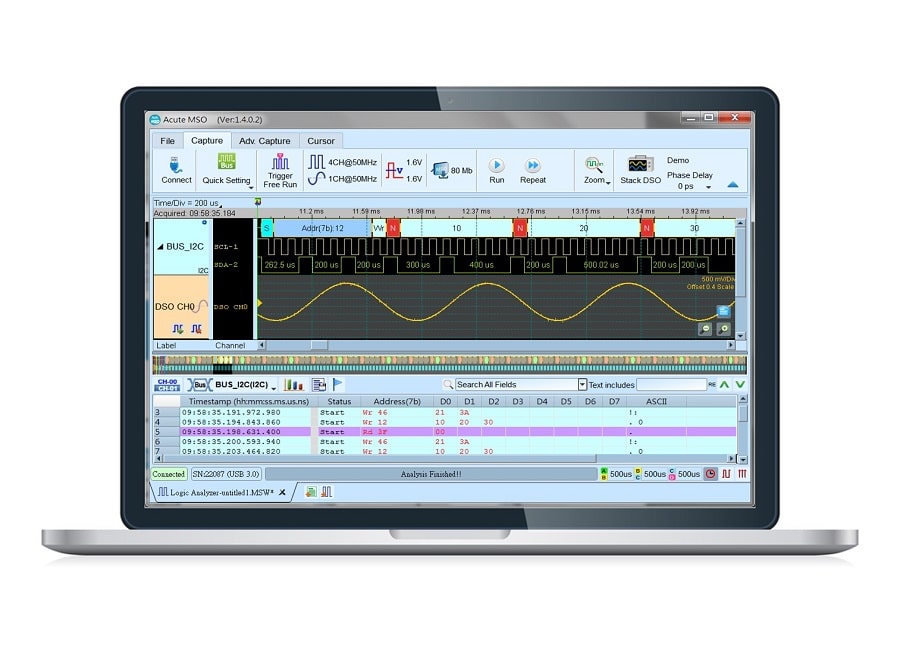
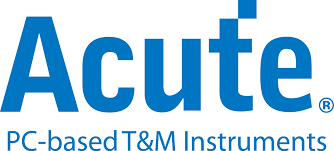
.jpg)
.jpg)
.jpg)
.jpg)